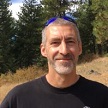New risk assessment tool will let computer judge inmates
adrianaMany people arrested in Spokane County wind up in jail simply because they can’t afford to pay bond, leaving little or no room for serious criminal offenders.

So officials are testing a new tool created by Zachary Hamilton, Washington State University assistant professor of criminal justice, to help determine who needs to be detained to keep the community safe versus those who can be safely released into the community and supervised by pretrial services.
The tool, called SAFER, applies an algorithm to calculate several factors and generate a score for judges to tell whether an individual is at low, moderate, or high risk to commit a crime if released from jail.
Now being used six times a day in county court, SAFER was paid for as part of a $1.75 million MacArthur Foundation grant.



